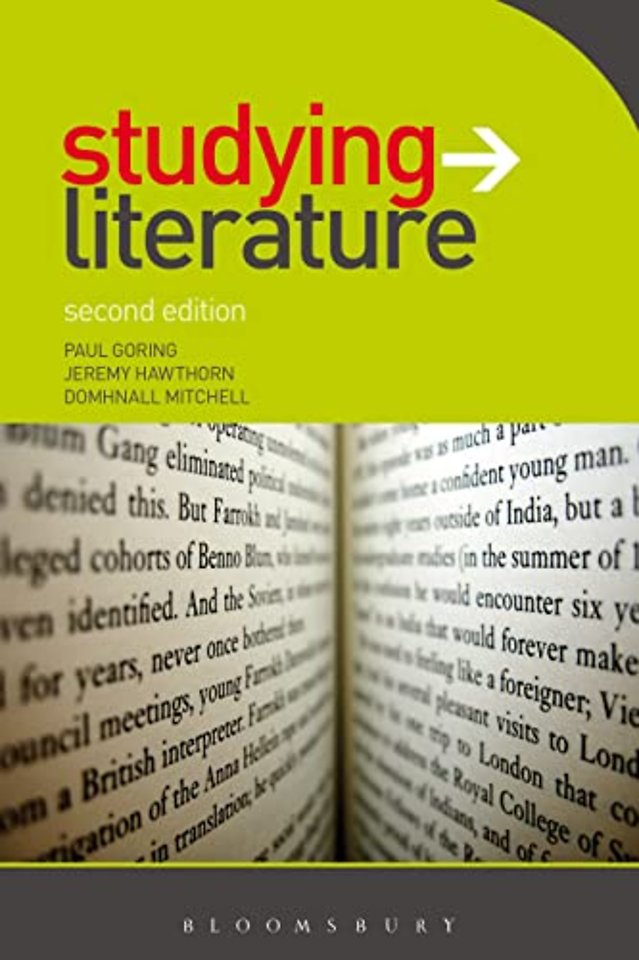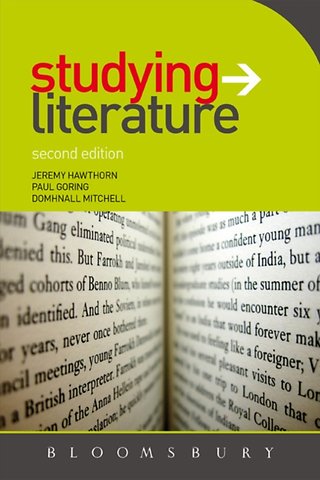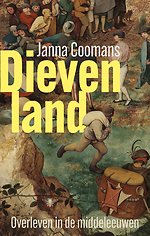Studying Literature
The Essential Companion
Samenvatting
Studying Literature: The Essential Companion is a unique guide for English undergraduates. It combines practical advice on study skills with key information on literary theories and theorists, offering invaluable support throughout any English degree.
Specificaties
Inhoudsopgave
Section 1: Guide to Studying Literature at University Introduction What type of guide is this? Is such a guide really necessary? 'Literary', 'primary', 'secondary': a note on terminology Getting organised Your degree scheme Preparing for courses Getting the most from lectures, seminars and tutorials Using the library Reading literary texts Reading and studying: general points Reading prose fiction: novels, novellas and short stories Reading drama Reading poetry Literary criticism What is literary criticism? How to find relevant criticism Using criticism Writing essays Analyzing the question Formulating and structuring an argument Applying literary theory in essays Writing Guidelines on presentation/style Plagiarism and how to avoid it Making a presentation Exams Preparation and revision Taking exams
Section 2: Guide to the use of electronic resources Some introductory comments Finding primary electronic information Issues of reliability Reading in the electronic age Searching and analyzing electronic texts Finding secondary materials Searching the Internet for literary resources Evaluating online secondary sources Useful sites Documenting electronic media Revising and editing electronically Safety measures
Section 3: Theories and approaches Introduction: Living with theory Molière's Monsieur Jourdain Reinventing the wheel The theoretical 'object' Types of theory Descriptive or prescriptive? Literature-specific? Butcher or biologist? School or theory? Chosen or thrust-upon? Theory and method A note on our groupings Formalisms Russian Formalism The Prague School New Criticism The Hermeneutic tradition Hermeneutics Phenomenology Reception theory Reader-response criticism Structuralism and its progeny Structuralism Semiology/semiotics Narratology Post-structuralism Deconstruction Pragmatics and the reaction against structuralism Speech act theory Psychological and psychoanalytic theories Psychoanalytic criticism Archetypal criticism Cognitive criticism 'Isms' Marxist theory and criticism The Frankfurt School New historicism and cultural materialism Thing theory Postcolonialism Ecocriticism Feminism Queer theory
Section 4: Guide to literary theorists Mikhail Bakhtin Roland Barthes Simone de Beauvoir Walter Benjamin Homi K. Bhabha Harold Bloom Bertolt Brecht Hélène Cixous Jacques Derrida Terry Eagleton Umberto Eco T.S. Eliot William Empson Stanley Fish Michel Foucault Northrop Frye Henry Louis Gates, Jr Gérard Genette Sandra Gilbert and Susan Gubar Lucien Goldmann Stephen Jay Greenblatt E.D. Hirsch Jr bell hooks Luce Irigaray Wolfgang Iser Roman Jakobson Fredric Jameson Julia Kristeva Jacques Lacan F.R. Leavis Georg Lukács Jean-François Lyotard Jerome McGann Paul de Man J. Hillis Miller Kate Millett Franco Moretti James Phelan Vladimir Propp I.A. Richards Paul Ricoeur Edward Said Ferdinand de Saussure Viktor Shklovsky Elaine Showalter Gayatri Chakravorty Spivak Tzvetan Todorov René Wellek Raymond Williams Virginia Woolf
Section 5: Glossary of literary and theoretical terms Bibliography
Vaak samen gekocht
Anderen die dit boek kochten, kochten ook
Net verschenen
Rubrieken
- aanbestedingsrecht
- aansprakelijkheids- en verzekeringsrecht
- accountancy
- algemeen juridisch
- arbeidsrecht
- bank- en effectenrecht
- bestuursrecht
- bouwrecht
- burgerlijk recht en procesrecht
- europees-internationaal recht
- fiscaal recht
- gezondheidsrecht
- insolventierecht
- intellectuele eigendom en ict-recht
- management
- mens en maatschappij
- milieu- en omgevingsrecht
- notarieel recht
- ondernemingsrecht
- pensioenrecht
- personen- en familierecht
- sociale zekerheidsrecht
- staatsrecht
- strafrecht en criminologie
- vastgoed- en huurrecht
- vreemdelingenrecht









